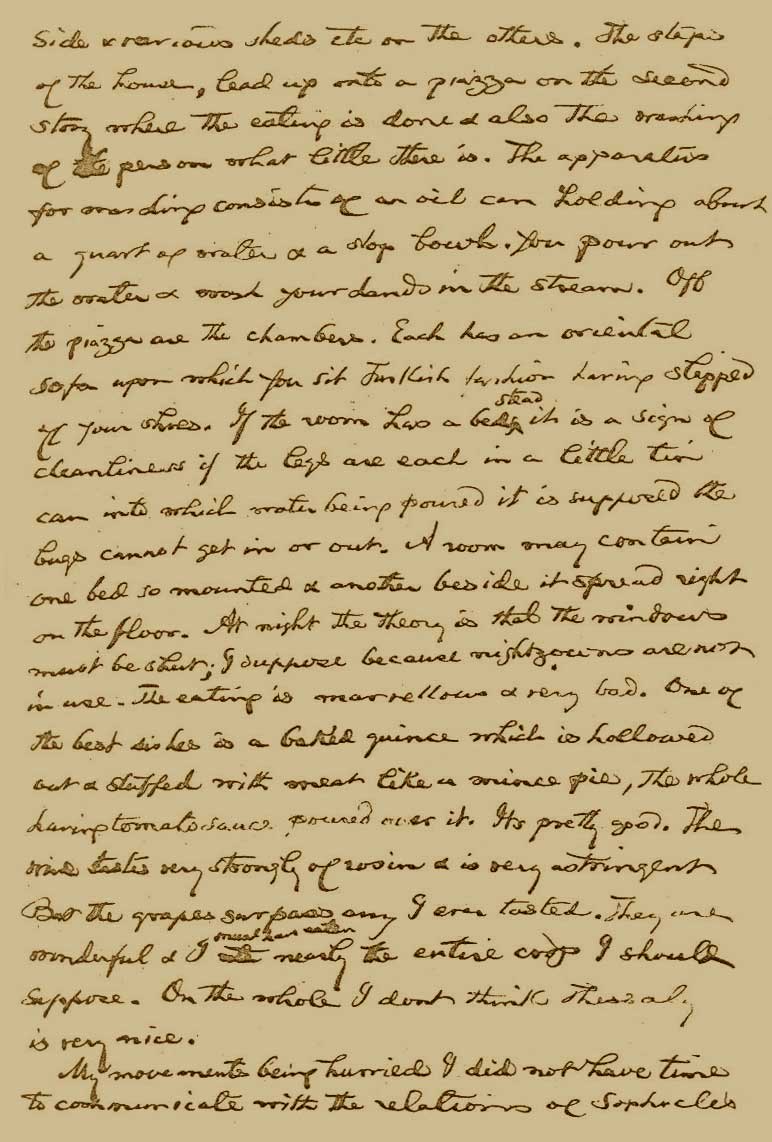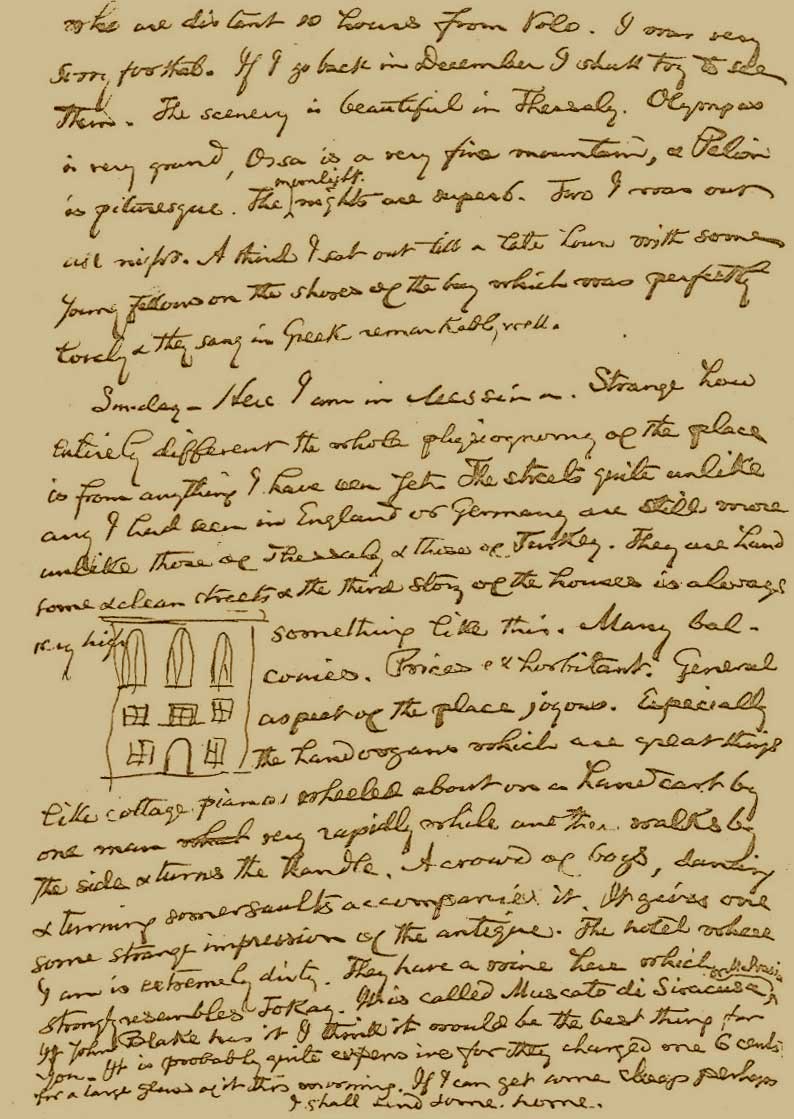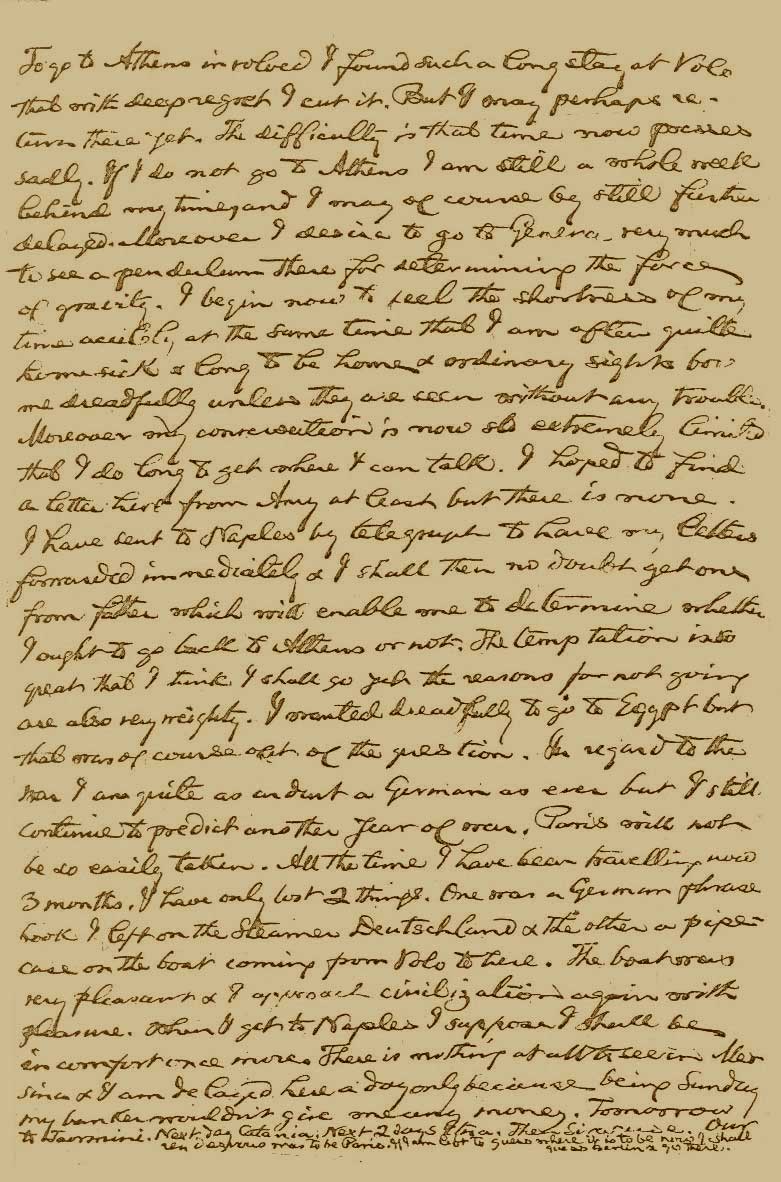| On
Steamer going to Messina
1870 Sep. 15 Before going to Volo people said so much to me of the imprudence of going there at this season on account of the fever & also of the number of robbers in the country that I didn’t feel at all sure I should ever come away. However here I am. I found both dangers had been exaggerated. It is true there is a great deal of fever there and also that people are afraid to walk a mile from the town without arms, but a daily dose of quinine keeps off the former & the road to Larissa is lined with soldiers. I also heard that there was no carriage road to Larissa but that turned out false, so that my getting a saddle in Constantinople was perfectly unnecessary. The moral is that they don’t know so much about Thessaly in Constantinople as they pretend. Being landed in Volo –an odd looking town, neither Turkish nor European- I asked for Mr. Gialópoulo to whom I had a letter, and was taken to his house where I put up. He was a nice old gentleman very cordial & a friend of Sophocles. His house being enough like all Greek houses I will describe one for all. You enter the yard through a door in a strong stone wall & the house is on one |



 Many
balconies. Prices exhorbitant. General aspect of the place joyous. Especially
the hand organs which are great things like cottage pianos wheeled about
on a handcart by one man very rapidly while another walks by the side
& turns the handle. A crowd of boys, dancing & turning somersaults
accompanies it. It gives one some strange impression of the antique.
The hotel where I am is extremely dirty. They have a wine here which
strong resembles Tokay. It is called Muscato di Siracusa or Malvasia.
If John Blake has it I think it would be the best thing for you. It
is probably quite expensive for they charged one 6 cents for a large
glass of it this morning. If I can get some cheap perhaps I shall send
some home.
Many
balconies. Prices exhorbitant. General aspect of the place joyous. Especially
the hand organs which are great things like cottage pianos wheeled about
on a handcart by one man very rapidly while another walks by the side
& turns the handle. A crowd of boys, dancing & turning somersaults
accompanies it. It gives one some strange impression of the antique.
The hotel where I am is extremely dirty. They have a wine here which
strong resembles Tokay. It is called Muscato di Siracusa or Malvasia.
If John Blake has it I think it would be the best thing for you. It
is probably quite expensive for they charged one 6 cents for a large
glass of it this morning. If I can get some cheap perhaps I shall send
some home. 
